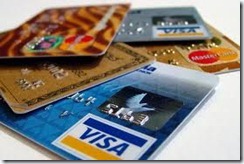Recently I heard a police officer speak at a Friends of the Library meeting about identity theft. He also gave some anti-burglary tips. In our community, the number one crime is vehicle burglary. Identity theft is number two, and home burglaries are number three.
To avoid number one, his main advice is “Don’t leave valuables in your car.”
People are especially vulnerable to identity theft during tax season, which is now. Filing by email has led to a huge problem in theft. He gave an example of a foreclosed house which was the site of 35 email refunds from the IRS. Refunds are often sent to scammers. How do they get your information?
The officer gave your doctor’s office as an example. Say your doctor hires a temporary employee. That person has access to all your personal files. Ask the front desk about privacy issues and what happens to the data you provide.
People steal information from credit card readers, reproduce new credit cards with your info, and sell these on the street. Examine your credit card and bank statements for unfamiliar transactions. 
Warning signs: You start receiving bills for items you didn’t purchase or statements from collection agencies for debts that aren’t yours. You are denied credit. Your bank or credit card statements stop arriving.
Thieves will go through your trash so make sure you shred anything potentially important. They’ll break into cars and steal information. Doctor’s offices and other places where you do business are vulnerable. So are Internet purchases, credit card transactions, and even PayPal. Scammers will get your attention with a fabricated website that looks like the real thing. Be very careful of links you click on. Check the URL for false trails.
Be very vigilant in protecting yourself. Always initiate a transaction; don’t click on a link sent to you in an email. Warning sign: After visiting a website, you get repeated emails about a product. Or you get a phone call from the company wanting to sell you something. You will be safer if you contact the company yourself at the outset.
Look at the URL for an “https” or a gold padlock symbol to show the transaction is safe. Make sure you use protection software for your computer and mobile devices. Shred any important papers. If you don’t own a shredder, try putting the papers in the kitchen sink and soaking them with water so the ink fades.
Are Identity Monitoring Services worth the money? Not if they do what you can do for yourself.
Be wary of kids selling magazines at your door. This is a known scam; they may be hired to collect personal information which you use when placing an order.
More prevention tips: Stash personal information when you have workmen in the house. Be wary of giving anyone your social security info, driver’s license number, birth certificate, or passport number until the source is verified. Don’t put any of this info on a credit card receipt or on your checks, including your phone number. Don’t give important info to a phone caller whom you do not know or over a cellular network. Do not send your social security number or any other personal information to an unknown source that you haven’t initiated contact with yourself.
The Florida Attorney’s Office keeps records of scams and frauds. Contact them to see if an offer is legitimate. If it sounds too good to be true (i.e. you’ve won a million dollars but we need you to send us $$), it probably is.
If you are a victim: Contact the Federal Trade Commission and report the crime. Get a police report. Notify the three credit bureaus and ask them to flag your accounts. Keep records of all correspondence. Notify all creditors and banks. Ask utility companies to watch out for anyone ordering services in your name.
Identity theft is “easy to commit, hard to prosecute.” The average time to resolve a case of identity theft is 4-7 years. You don’t want to become a victim. Take precautions now.
How to Prevent Home Burglaries
The officer briefly touched upon this subject.
Have strong doors and windows
Have an alarm system
Get a free residential survey from your local police if they offer this service
Protect your garage door
Get a dog
Trim the landscaping around your house
Change the pattern of your house during the day; i.e. leave the TV or radio on at different hours
Have a neighbor park his car in your driveway
Stop delivery of newspaper if you are going away
Lots of these are common sense items. Do what you can to protect yourself and your property, and avoid the anguish of setting things right later on.























Good advice. Also, I rarely give my license to anyone for ID. I use a travel agent card w/my picture and a big ID on it. Doctors offices sometimes ask for your license – I refuse, and they just say, “okay.”
Good points, Carol, but at least you have the travel agent card you can use.
All good advice, Nancy. Thanks for posting. A police officer who helped us organize a neighborhood watch program in Jacksonville told us the best protection is a good neighbor. Watch out for each other, collect each other’s papers, and call the police immediately if something looks amiss.
Yes, that is very true.